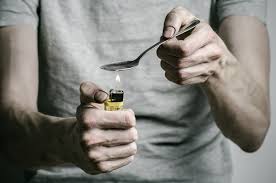Underage alcoholism frequency

Underage alcoholism frequency is worrying and timely action needs to be taken to prevent the dangers ahead
Underage alcoholism frequency: Signs and symptoms of alcoholism and drug dependence
The underage alcoholism frequency and college drinking are currently being magnified and promoted by the easy access to alcohol and drugs. Alcohol is the most abused drug among youth globally with the United States leading in youthful addiction. Currently, available statistics indicates that more tobacco and illicit drugs are being used by youths below the age of 21. It is also frustrating to note that of all the alcohol consumed in the US up to 11% of that substance is consumed by people aged between12 to 20. That is not something to take for granted because early use of alcohol can draw young people into a host of problems and aggravate existing ones says doctor Dalal Akoury a veteran addiction expert of over two decades. According to the experts from AWAREmed Health and Wellness Resource Center a facility established by doctor Akoury to primarily deal with all matters relating to addition, each year approximately 5000 young people under the age of 21 dies as a result of underage drinking. This includes about 1,900 deaths from motor vehicle crashes, 1,600 as a result of homicides, 300 from suicide, and hundreds from other injuries such as falls, burns, and drowning.
Besides that, it is estimated that up to 600,000 college students are accidentally injured while under the influence of alcohol with another 700,000 students being assaulted by other students who have been drinking and as if that is not enough about 100,000 more students are victims of alcohol-related sexual assault or date rape that is according to statistics available from NCADD Fact Sheet which are also in agreement with the above statistics. When we talk of the high prevalence of underage alcoholism prevalence, it is not a small matter to be wished away because as a matter of fact there is evidence that over 11,000 teens in the US are becoming first users of alcohol daily by trying to use the drink for the first time and that translate into more than four million drink alcohol in any given month. As you ponder about that, let’s find out why young people often resort to drinking alcohol.
Underage alcoholism frequency problem: Why do young people drink alcohol?
The reasons why young people take alcohol are not different from that of adults. Some of those reasons may seem obvious, however understanding the feelings and motivations behind them as well as how each teen’s life comes into play can be difficult. The following are some of the reasons why young people resort into drinking alcohol:
- Some young people often drink to check out from family problems or issues with school performance
- It could be motivated by loneliness, low self–esteem, depression, anxiety disorder and other mental health issues lead many young people to drink alcohol
- Young people turn to alcohol to deal with the pressures of everyday social situations
- Young people may drink to change their image or to fit in when moving to a new school or town
- Young people may drink to gain confidence or lose inhibitions
One clear point is that it may not matter the reasons why young people engages into this habit. Irrespective of the reason, the consequences remain the same. That is why seeking help from the experts at AWAREmed Health and Wellness Resource Center immediately is very necessary.
Underage alcoholism frequency problem: Signs and symptoms of alcoholism and drug dependence








